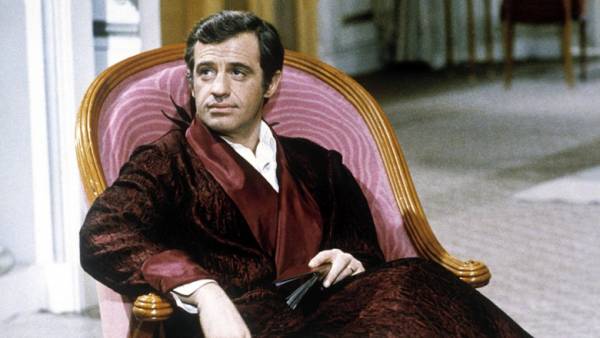The last professional. Why the USSR was so in love with Jean-Paul Belmondo
Soviet audiences in the early 1980s went to the cinema on the Comedy “sports lottery-82”, “Prohindiada” and other gently hinted that someone somewhere we sometimes honestly do not want to live the movies. To the detectives about the people in the form of successfully bringing clean water to the characters of the previous category. In “about love”, of course — but also “adventure”, which was disappointingly small (and the term “action” was used exclusively in an abusive mood). And I went “Belmondo” — the good, movies with French handsome successful fit in all of the above genre boundaries.

Ironically, the main and one of the first film in the career of the actor who glorified it to the whole world, we could look only at the end of the restructuring. 9 APR Bebel (as they call it in France; the emphasis, naturally, on the second syllable) marks 85 years, and the portal iz.ru recalls the years of people’s love for Belmondo and his on-screen heroes.
The commissioners sitting
The Commissioner Borowitz was a dazzling smile in no less than 33 tooth, broken nose Boxing, incredible cut on the leather cellular lining, the hollow of which was hidden incredible the same size revolver. The Commissioner went on the open sports car — of course, also incredible, because none of the boys, a fight breaks on the film (in fact, children under 16 watch it was not supposed to, but severity in this respect was observed not everywhere and not all grandmothers, ushers), could not accurately determine the grade.
Regarding the gun all converge on the fact that it is a “colt” and what else? And they were right — it was a Colt Python .357 Magnum. In the car, to the enlightened readers of “the wheel” was recognized like the English Lotus, skeptics said it was “homemade (right were all the film stars Caterham Super Seven, the national replica of the famous Lotus Seven). In one opinion, all the boys were unanimous: another such actor, who played brave Commissioner Jean-Paul Belmondo, was not, and likely never will.

A film by Georges Lautner called in our hire “who’s Who”; the original title was much more certain — Flic Ou Voyou, “COP or hood” — but the Soviet censorship, it was overkill (and a separate scene where Belmondo divided society with the heroine femme Marie Laforêt, who as a result did not see the audience over the age of 16). But “Belmondo” go not French for “strawberries”. Commissioner Borowitz, as well as other characters of fighters with Belmondo — Roger Pilar in “Hunter”, Josselin beaumont in “Professional” quenched the thirst of the society for the hero without fear and reproach, who is above the law and taking the law into their own hands.
Here, by the way, the incredible popularity zheglova from “the meeting Place cannot be changed” — it’s not just the charisma of Vladimir Vysotsky, but in the famous “a thief should sit in jail. I told you!” But if the captain Zheglov could afford except to toss the purse of the hapless Brick-Sadalsky, the commissioners (the title of the post also resonated with known strings in the soul), without hesitation snatched “Colt Python” and “solved the problem” without waiting for the arrival of the Prosecutor’s office.

However, in General, touched and Comedy with Belmondo — in the Soviet recension crooks could be as charming (remember though the classic image of the Great Schemer), but in the final they definitely comprehended the inevitable retribution of socialist rule of law. Heroes Belmondo usually got away with it — or rather, they almost always emerged unscathed, with a bag of money in one hand and a waisted beauty in the other.
The only exception was “Stavisky” — but the story of a mad adventurer who financed Trotsky and became the cause of a failed coup d’etat in France as incredible as it is truthful — and the movie was shot Alain Resnais, one of the greatest filmmakers of France of the twentieth century. It’s funny that these roles – often dubbed the Sergei Yursky, the first and, perhaps, authentic and convincing Ostap Bender Soviet cinema (the Golden calf Michael Schweitzer).